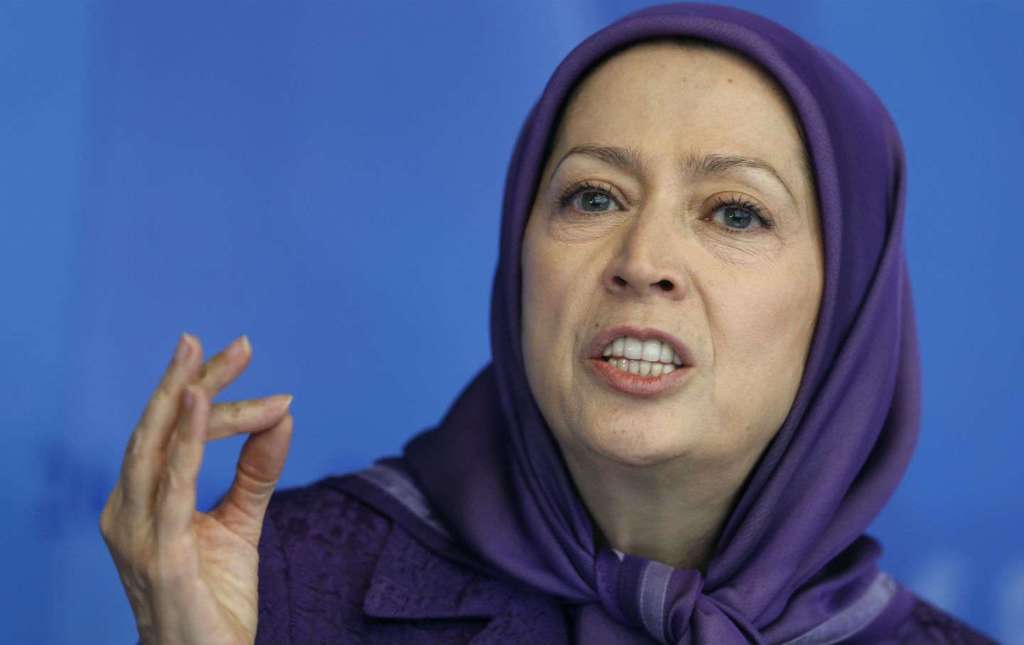Ramallah-An official from the Fatah Movement headed by Palestinian President Mahmoud Abbas said Palestinians are requesting an apology from Tehran after some Iranian officials had offended Abbas who had met with leading Iranian opposition figure Maryam Rajavi last Saturday.
The Palestinian request came amid Iran’s attempts to ease tension between both parties.
A Palestinian official, who wished to remain anonymous, was surprised about the attack launched by Iran following Abbas’ meeting with Rajavi, and said it was not their first meeting and that it had no political dimensions.
Following Abbas’ meeting with Rajavi on Saturday, the official Palestinian news agency Wafa said the president only updated Rajavi on the latest developments in the Palestinian territories and the Middle East.
Sources from the Fatah Movement told Asharq Al-Awsat that Palestinians did not want to deepen the crisis, however, they insist on receiving an apology, as previously voiced by Palestine Liberation Organization Secretary General Saeb Erekat who said Palestinian leaderships would not remain silent vis-à-vis the Iranian insults.
Tehran had strongly lashed out at Abbas during the past few days for meeting with Rajavi in Paris over the weekend. A top adviser to the Iranian Foreign Minister, Hussein Sheikh al-Islam, said the Palestinian leader “has been a collaborator with the Central Intelligence Agency for a long time.”
Secretary of Iran’s Expediency Council Mohsen Rezaei said in a post on his Instagram account on Monday that Abbas was the most incompetent individual in the Fatah party.
Iran not only attacked Abbas, but had also asked its Palestinian allies to join the campaign.
The Alliance of Palestinian Forces in Syria issued a statement describing the meeting of Abbas with Rajavi as “a stab to the Palestinian-Iranian relations.”
Fatah strongly replied to the Iranian attack by accusing Tehran of creating division between Palestinians.
“They have vied and are still vying to destroy and ruin the Palestinian people,” a statement carried by Fatah said.
It added: “A careful reading of adviser to the Iranian Foreign Minister Hussein Sheikh al-Islam’s statements make it clear to us of the horror that many people are carrying out to serve the Zionist project through organized campaigns against the president of the Palestinian people and the Palestinian issue.”
A Fatah official said the Iranian leadership tried to contain the crisis by sending a letter to end the dispute. “Their ambassador to Paris has met with the Palestinian ambassador for this end,” he said.
Sources told Asharq Al-Awsat that during their meeting, the Palestinian ambassador asked Iran to officially apologize for attacking Abbas.
An official from the Fatah Movement said the Palestinian president’s meeting with Rajavi does not mean an interference in Iranian internal affairs.
The official asked why Abbas was not allowed to meet with the Iranian opposition while Iran is allowed to meet and support all Palestinian opposition groups, and even incite them to cause chaos.
Meanwhile, Mohammad Mohaddessin, the Chairman of the Foreign Affairs Committee of the National Council of Resistance of Iran (NCRI) accused Tehran of sending 80,000 members from its armed forces to Syria.
He said: “Terrorists linked to them (Iranian regime) were performing the ugliest crimes in several regional countries, including Bahrain.”
Asked about the accusations launched by Iran against other regional states for collaborating with Israel, Mohaddessin said: “Tehran used to buy weapons from Israel during the Iraqi-Iranian war.”
